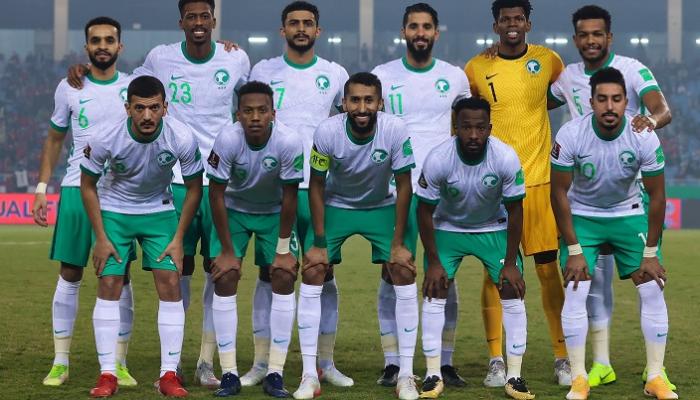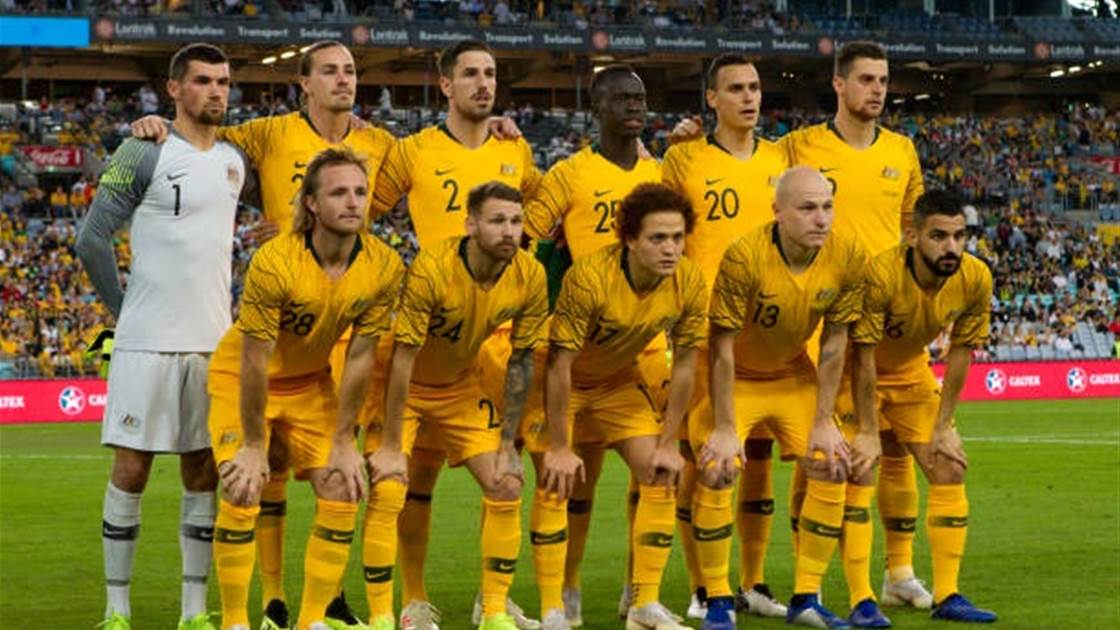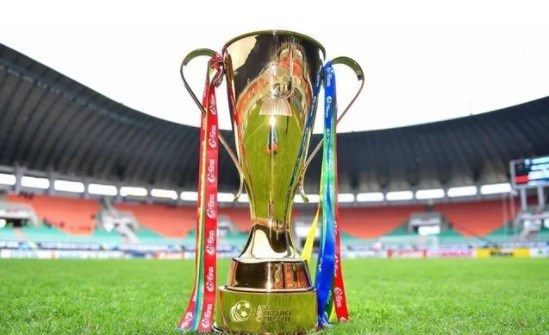Is it the time for the AFF to include Australia for future football competition?
When Australia moved from the OFC to AFC in 2006, a number of question raised upon our head about Australia's football status. Well, it is a country mostly renowned in rugby and cricket rather than football - having just qualified for one World Cup in 1974; the 2006 marked Australia's second. However, Australia performed relatively well in that edition, only to fall to eventual champions Italy in the round of sixteen.
But the AFC isn't uniform. It also includes sub-federations, which we have as of 2021, five sub-federation zones (West Asia, Central Asia, South Asia, Southeast Asia and East Asia). Australia joined the Southeast Asian zone (AFF - ASEAN Football Federation) because of geographical proximity in 2013, but it has been the best-performed team from the region ever since, with five World Cups for now. Moreover, it carries the only honourable title for Southeast Asian football, the AFC Asian Cup, winning it in 2015.
Australia is surely not at the best now - but by our standard, it is still a fairly strong opponent. Yet, in a very suicidal move, the AFF agreed to let Australia in in 2013, but forbade Australia from taking part of the AFF Cup in fear that Australia would overpower the rest. This has greatly hampered AFF from developing in spite of the clear advantage we may exploit from having the Aussies.
The question for me is, why should we fear Australia?
I wrote this when the 2020 AFF Cup, postponed to this year due to the COVID-19 pandemic, is about to start in 5 December. This is one thing I remain uncertain about the future of Southeast Asian football when we are looking forward for a potential dream of taking part in the World Cup, especially with the expansion from 32 to 48 teams starting with 2026. However, with the upcoming AFF edition saw Australia absent, this is not a great new for Southeast Asia.
It is necessary for Southeast Asia to include Australia in this cup, soon and from now on.
An example of how a team inspired the region to grow is none other but Saudi Arabia-West Asia. Saudi Arabia is the current football force of Asia and is also quite a big name, already played in five FIFA World Cup. But Saudi Arabia also has times when it is weak, so it needs regional tournaments that will provide opportunities for their next gens. Indeed, in the region alone, two major tournaments were established: the WAFF Championship and the Gulf Cup - both function in a similar way to that of AFF Championship.
Of course, Saudi Arabia takes more interests in the Gulf Cup than that of the WAFF Championship - but these tournaments are essential for the Saudis to bring out its young guns. Indeed, neither Saudi Arabia deploys their best players - it is Saudi Arabia's reserve second/third team that appear in the name of the country. But being allowed to play in these minor competitions provide the young Saudis to be well-armed for future bigger tournaments. Even in the larger FIFA Arab Cup in 2021 that includes North Africa, Saudi Arabia also sent in a young squad.
 |
| Saudi Arabia has an influential power in improving fellow West Asian football nations. |
Of course, don't forget that Saudi Arabia's participation has a significant impact on improving the morale of the other fellow teams in the West Asian zone, especially when Iran (another major Asian football giant) left in 2015 due to tensions with this part. Saudi participation allowed the other teams from this region to learn new kind of football that isn't seen before. This, in turn, helps the likes of the UAE, Iraq, Qatar and Kuwait to have determination, while also increased footballing abilities of somewhat smaller and weaker opponents like Bahrain, Oman, Jordan, Syria and Lebanon.
Let's not forget before 1990s, West Asian football's achievement was limited, but thanks to the rise of Saudi Arabia, these nations have become fairly stronger and more competitive. In addition, they also build up themselves bigger ambitions and greater self-confidence when being allowed to compete with the only West Asian side to have played more than one World Cup. This has resulted in the improvement of results and player management, especially from the likes of Qatar, the UAE and Iraq - even influence can also be seen with Oman and Lebanon during the current 2022 WCQ.
Another examples that also empowers some weaker teams in respective regions to develop is the case of Japan and South Korea with East Asian football status. Japan and South Korea are two major giants in Asia, like Saudi Arabia, and has also taken part in many FIFA World Cup. They also provide opportunities for the other to become better by taking part in the regional EAFF E-1 Championship with younger or inexperienced squads to gather more opportunities, although these teams (most prominently China, North Korea and Hong Kong) aren't really that capable of maximising the chance in spite of the plenty experience gotten from Japan and South Korea. Really.
 |
| Japan and South Korea also have some impacts in the development of East Asian football. |
Still, with Japan and South Korea taking part, China, North Korea and Hong Kong - the three most prominent other forces after Japan and South Korea - also get benefits, with Japan and South Korea have potential replacements from the main sides. China and North Korea may have not seen a World Cup again since 2002 and 2010, but they get their dreams and ambitions forward.
The other major Asian powerhouse I will wonder is Iran, as once a member of West Asian football society but left for Central Asia in 2015 due to political tensions. Central Asian football region (CAFA - Central Asian Football Association) is a relatively new one, so it is not clear how will Iran impact the region to develop football here, not to say these Central Asian nations (except Afghanistan) are still attached to the old Soviet football school, once belonged to the world's most formidable - even though they're far from unleashing full potential left back by the Soviets.
This, again, evokes my question I wrote earlier, why should we fear Australia?
As I mentioned before, Australia is no longer as strong as it used to be, but it is still a force in Asian football in general. This means that if the AFF can break the deadlock, football of the Southeast Asian region will definitely improve. There are many benefits when Australia is granted to join.
 |
| Australia's frequent World Cup experience is a clear distinction from the rest of Southeast Asia. |
Let's imagine what would happen if Australia joins the AFF Championship.
Sure, the first thing we definitely expect will be Australia not deploying its best players - they will send the second/third team to take part. No matter which squads Australia sent, this is still an opponent you can't underestimate - overall, it has the status as the eldest brother.
The second will be we will face a much tougher opponent, an opponent that is clearly physical, tough, strong and buff. Australia offers a relatively unique footballing style that is typically belong to the Anglo-Saxon world. This will increase these weaker Southeast Asian teams' experience and will provide an edge in the future when facing equal or stronger sides of the same continent.
Third, Australia is also likely to introduce the modern, European-based training technique the country has already possessed. Of course, many Southeast Asian nations have hired managers from Europe, but very few can understand how to operate, even when it is Thailand - the most formidable of the region for a long time. Australia is likely to change this because of the country's strong connection to Europe.
In all, despite the cost, Australia's participation maybe the biggest benefit for the Southeast Asian zone - the only AFF champions of the Asian Cup in general and have played more than one World Cup. Australia's impact can be definitely similar to that of Saudi Arabia for West Asia and Japan/South Korea for East Asia. It is certain that every beginning is never easy, but the more we value Australia, then Australia shall revalue our hardworking ethics. Australia, despite European root, is geographically close to Southeast Asia.
One side, Australia is likely to boost further its professionalisation of football in the country, as football has begun to gain grassroot following their successful 2006 World Cup qualification. The country may have played in five World Cup, but its football is only gaining further development as the country's primary sport is traditionally rugby. Being allowed to take part will enhance training between these nations and Australia, further development in building professional football sense (which lacks among many ASEAN nations).
More importantly, with Australia being allowed to take part, the remaining 11 members of the AFF shall see itself more capable of playing against stronger opponents in Asia, ultimately sending themselves some opportunities to compete with the best, especially when the 2026 FIFA World Cup will expand to 48. It will also mean the fear of playing away in the heat of Middle East/West Asia or against the might of East Asian sides will be there no longer.
If AFF Cup wants to be more competitive, and also to be stronger in the future, it's time for us to add Australia in. We shall see the true value.

Comments
Post a Comment